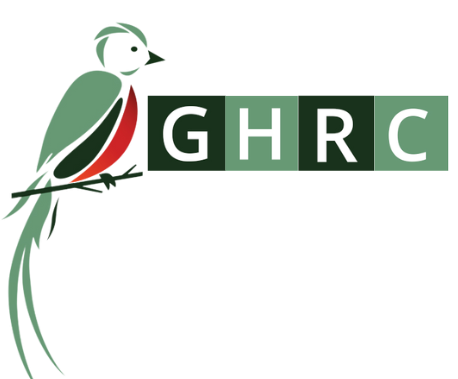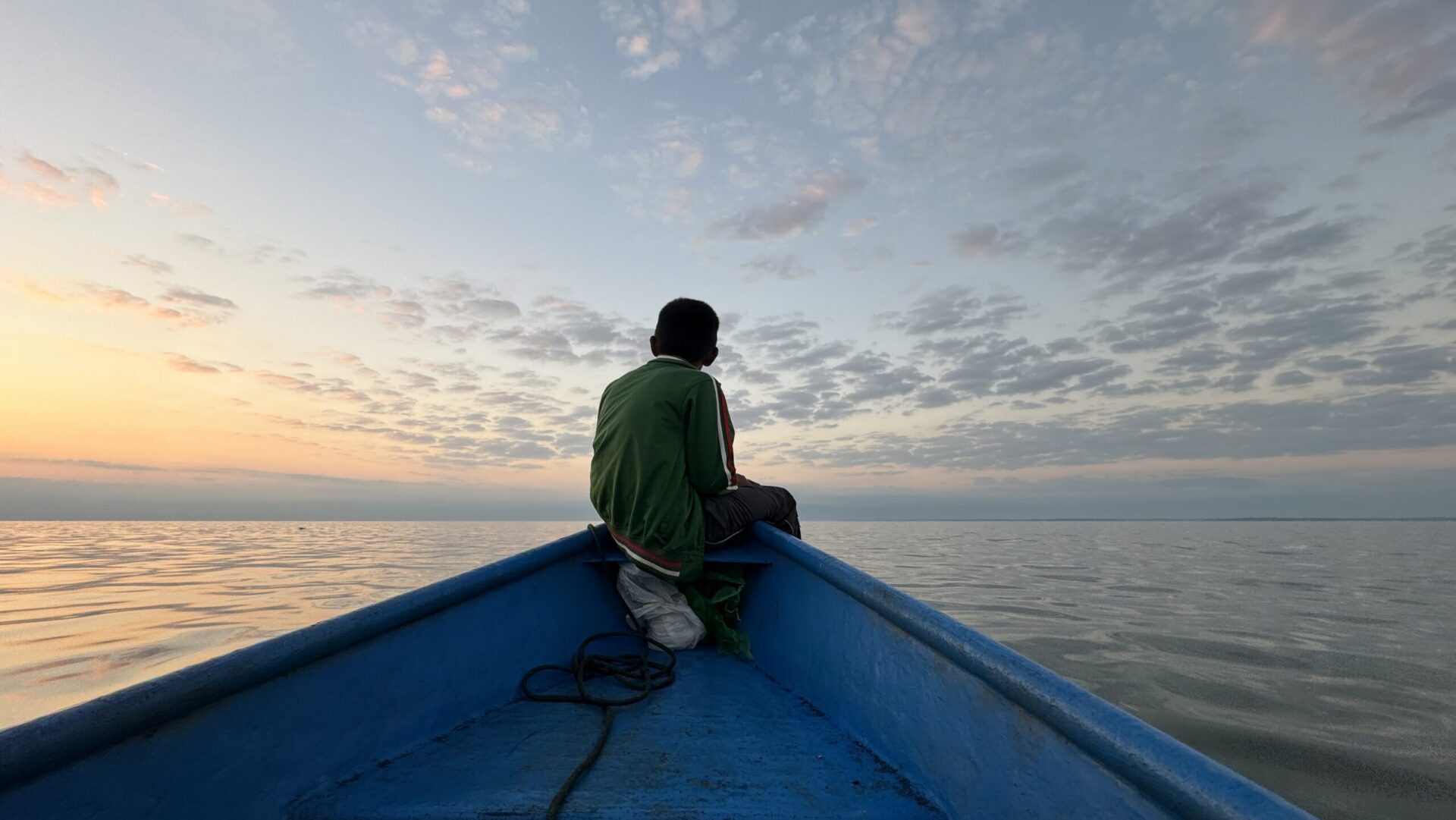| JUMP TO: General travel in Guatemala GHRC delegations: Getting started GHRC delegations: Fundraising and payments GHRC delegations: The delegation experience |
General Travel in Guatemala
Q: What are the passport and visa requirements?
A: For citizens of most countries, a valid passport is all that is required for travel to Guatemala. For many countries, including the US, tourist visas are not required for stays of 90 days or less (requirements for traveler’s home country should be consulted). There is an exit tax (currently USD$30) for departing Guatemala by air, but this tax is usually included in an airline ticket price. There is an additional airport security fee of 20 quetzales, or approximately USD$2.60 that is also usually included in the ticket.
It’s advisable to carry a photocopy of your passport with you at all times while in Guatemala.
Q: What is the weather like?
A: The climate of Guatemala is broadly divided into three sections, corresponding with changes in altitude. The rainy season lasts between May and October, and typically it rains for a few hours a day at that time. The dry season runs through the rest of the year, although there are some rainy periods sporadically.
Tropical coastal zone : includes the coastal areas and lowlands up to 1,000m altitude. The climate there is hot and humid throughout the year, with temperatures ranging from 68˚F (20˚C) to 99˚F(37˚C).
Temperate zone : area from the south western corner of the country to its border with Honduras and El Salvador. Antigua and Guatemala City are located in this zone. Here, temperatures will vary between cool at night and warm during the day (up to 85˚F/30˚C).
Mountainous zone : includes the areas of Guatemala above 2,000m, where temperatures are often in the 70’s (˚F) during the day and can drop to below freezing at night.
Q: Are there security or health concerns that I should be aware of?
A: It’s recommended, but not required, to receive hepatitis A & B, rabies, and typhoid vaccinations before you travel to Guatemala. Mosquitoes can transmit diseases, such as malaria and dengue fever, which can best be prevented by avoiding mosquito bites all together with insect repellent. A more common health issue for travelers is diarrhea, which can be avoided by the following tips:
- Wash your hands thoroughly before eating.
- Be selective about street food, try to peel or cook fruits and vegetables, and eat in busy places around mealtimes.
- Avoid tap water unless it has been boiled thoroughly or disinfected. Use bottled water to brush your teeth.
For GHRC-led delegations, we will share our specific security policy with delegates prior to arrival in Guatemala.
Q: Are there cultural norms in Guatemala that I should be aware of or follow?
A: Like many other countries in Central and South America, people tend to dress more conservatively. Women tend to wear longer skirts and shirts with sleeves, and men typically wear pants, even if it’s warm outside. Although it will be understood that you are a tourist, it’s advised that you dress more modestly, especially if you plan on visiting certain attractions, such as churches.
Always ask permission to take photographs. Also, it’s important to be mindful when taking pictures of people’s artwork, such as paintings or photographs.
When greeting others, men usually shake hands with men, and women give besitos (a side-kiss on the cheek) when greeting women. Generally, wait to see if the woman reaches out for a hand shake. When entering a room in public places, such as a restaurant, it’s polite to say a general greeting to everyone (Buenos días or Buenas tardes).
Q: How will I change money?
A: To change cash, there are several currency exchange shops, in Guatemala City and in the airport. Some will vary in their exchange rates, so it’s advised that you check the most recent exchange rate before arriving to Guatemala. You can check international exchange rates here.
ATMs (cajeros automáticos) are available throughout Guatemala City, accept most major credit or debit cards, and are often the easiest way to change money. ATMs affiliated with BAM, BanRural, and Bantrab Guatemalan banks are recommended, as there have been reports that ATMs unaffiliated with these banks have been used for card cloning and other scams. To avoid scams, use ATMs that cannot be tampered with easily (inside supermarkets or shopping malls).
Q: Do I need a converter?
A: Consult the voltage of your home country. Guatemala uses 120V/60hz (the same as in the US).
Q: What should I pack?
A: GHRC’s suggested packing list is available here.
GHRC Delegations to Guatemala
GETTING STARTED
Q: How do I apply to a delegation? What does the application process consist of?
A: Applications for our annual open delegation (usually in August) are available on our website, and should be submitted via email to Kelsey Alford-Jones (kajones@ghrc-usa.org). The application consists of 5 or 6 questions asking about relevant experience in Guatemala, Latin America, or with the subject matter of the delegation. The deadline to submit applications is usually around two months prior to the delegation; at this point, a GHRC staff person will contact you to schedule a short phone conversation and will then notify you regarding acceptance and next steps.
GHRC can also lead more specialized delegations for university groups, congregations, or professionals who are interested in learning about a specific topic relating to human rights in Guatemala. Contact kajones@ghrc-usa.org for more information.
Q: Who can attend a GHRC delegation?
A: GHRC holds several delegations each year, some of which are open only to students attending partnering universities. For the past three years, GHRC has partnered with American University’s Alternative Break program to lead a winter delegation focused on human rights defenders, the internal conflict, and current threats to indigenous land rights. We also lead one open delegation each year, usually in August, which is open to anyone who wishes to apply.
Q: Do I need to speak Spanish to participate?
A: No knowledge of Spanish is required to participate, as GHRC will provide translation during the delegation.
Q: Do I need to have a background in human rights or Latin American affairs?
A: No, the delegation experience is open to anyone, and we welcome individuals with diverse backgrounds and experiences. In the past, students, professors, religious leaders, lawyers and activists have participated.
FUNDRAISING AND PAYMENTS
Q: What is the delegation participation fee?
A: The fee is currently $1,200 (not including international airfare to/from Guatemala City, which is the participant’s responsibility).
Q: Are scholarships available?
A: Limited scholarships are available. Those who wish to be considered for a scholarship should note this information in the application, and a GHRC staff person will follow up with each individual regarding available funds. Those who wish to contribute money to a scholarship fund so that others may participate may also do so.
Q: How do I make a payment?
A: You will receive an email with payment information. We require an initial deposit of $100 to be made to hold your spot. Payments via credit or debit card may be processed over the phone or online. Payments may also be made via check or by credit card and mailed to the below address:
GHRC/USA
3321 12th St. NE
Washington, DC 20017
Q: Are payment plans available?
A: We prefer to receive one total payment; however, a payment plan can be arranged. Please ask the GHRC staff person coordinating your trip about payment plan options.
Q: What happens if I need to cancel?
A: If you need to cancel, please contact the GHRC staff person coordinating your trip as soon as possible. The $100 deposit is nonrefundable, but the rest of your participation fee will be returned.
Q: How much spending money will I need?
A: Only carry the money, cards, checks and valuables that you need. GHRC will provide all meals and housing, but participants should bring money for souvenirs or additional snacks.
THE DELEGATION EXPERIENCE
Q: Who will pick me up from the airport?
A: A GHRC staff member or driver will be waiting to pick you up in the international arrivals area of La Aurora International Airport (GUA) airport in Guatemala City to transport you to your hotel. Look for someone holding a GHRC sign!
Q: What if my flight gets delayed or canceled?
A: If there are changes to your flight, please communicate this information as quickly as possible to GHRC (you will be provided with contact points both in the US and in Guatemala). GHRC staff members and/or drivers may not be able to check the status of your flight immediately.
Q: Who leads the delegation trip?
A: Two GHRC staff members will lead the delegation and at least one GHRC staff person will remain with the group the entire time.
Q: Where do participants stay?
A: GHRC will organize hotel accommodations for delegates for the duration of the trip. All participants will stay at the same hotel together in rooms which are normally shared.
Q: What kinds of meals will be provided?
A: GHRC will provide three meals a day, as well as water and snacks. Meals may be provided at the hotel, at a local restaurant, or by community members with whom we are visiting. Dietary restrictions should have been noted in the Delegation application; however, please contact your delegation coordinator if you were not able to list dietary restrictions. Participants are also welcome to bring snacks, especially those who have special diets.
Q: Can you provide a sample itinerary?
Due to the rapidly changing landscape of human rights cases in Guatemala, and for security reasons, we do not share detailed itineraries ahead of time. However, GHRC delegations usually combine meetings and activities in Guatemala City with a trip to a community (or communities) outside of the capital. In the past, delegations have traveled to Xela and surrounding communities, Rabinal, El Estor, Puerto Barrios, and Santa María Xalapán. While there are small pockets of time for tourist activities (e.g. visiting an artisan market), the delegation is an immersive experience focused on providing a broad overview of human rights challenges in Guatemala.
Q: How many participants attend each delegation?
A: Approximately 10-15 participants attend each delegation.
Q: What happens after the delegation?
A: As part of the delegation, we ask participants to commit to carrying out a “post-delegation action.” These commitments are up to each individual; in the past, participants have written articles, hosted educational events, and met with their congressional representatives to express concerns about human rights in Guatemala. We also hope that participants will stay in touch with GHRC by joining our listserv and participating in our ongoing events and urgent actions.

